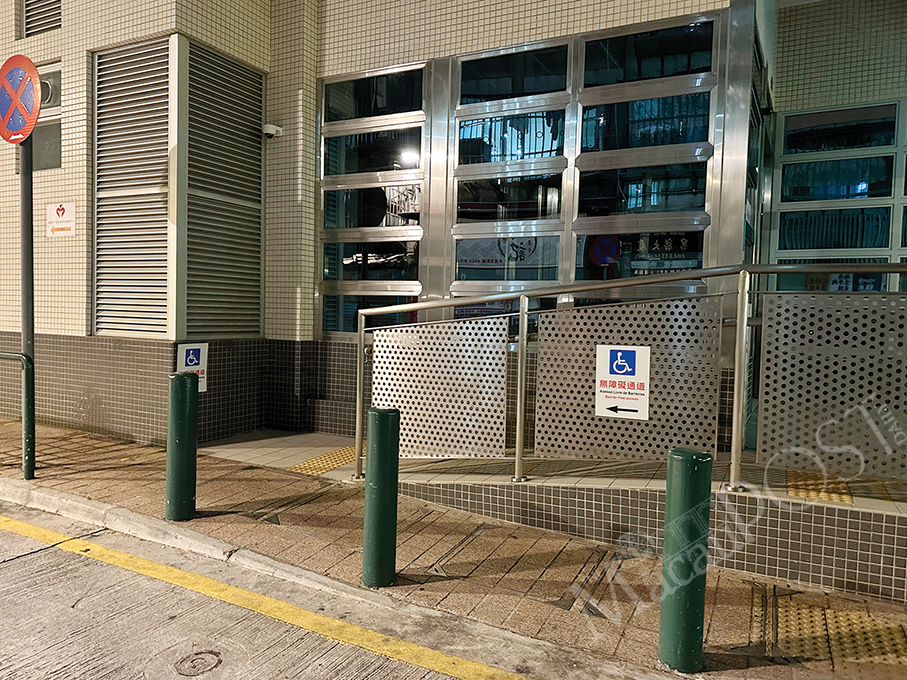Kou Chi Kin, the manager of Fuhong Society of Macau’s Pou Choi Centre, told the Post recently that Macau’s barrier-free law needed to be amended, pointing out that uneven road surface problems still exist in some neighbourhoods, which made it very difficult for manual wheelchair users.
Founded by a group of volunteers in 2003, the Fuhong Society of Macau is a non-profit social service organisation dedicated to providing diverse services for persons with intellectual disabilities and persons with mental illness in rehabilitation.
Kou said: “Macau has neither set up tactile guidance facilities in parks nor clearly standardised the setting of barrier-free facilities, bringing inconvenience to people with disabilities.”
The disabled are not given equal rights in civic society, he said, underlining that what they needed was not only financial support, but also the practical support from the government in their daily lives.
According to Kou, in order to enable more people to understand the daily lives and the needs of the disabled from a first-hand perspective, the centre launched in 2022 an experiential activity simulating real-life situations the physically disabled and the visually impaired face, such as the use of wheelchairs, walking aids and street guide tactiles.
Directly-elected lawmaker-cum-social worker Nick Lei Leong Wong has submitted a written interpellation urging the government to constantly update its guidelines and space standards for barrier-free environments for disabled and elderly persons.
In his interpellation, which was released earlier this month, Lei said that the local universal architecture standard has been in use for more than 40 years and was no longer able to meet the needs of modern society, as many of the requirements stipulated for the construction of buildings were merely advisory and non-binding, both for future or existing projects.
He added that the relevant standards and guidelines were only binding for public work projects but not mandatory for private projects, which was not conducive to the realisation of a barrier-free environment and hindered the development of an inclusive society.
The written interpellation highlighted the necessity of implementing the construction of a barrier-free environment by means of law amendments and new legislation, adding that whenever he questioned the government on the relevant amendments, the government evaded answering and failed to give a positive response.
Regarding the fact that the government has indicated that it would consider studying law amendments to require the provision of barrier-free facilities in private construction projects, Lei urged it to review the implementation of the relevant guidelines and standards and make them public, such as how and when to proceed with the amendments, and how to require all the construction projects in Macau in the future to comply with the city’s guidelines and space standards for a barrier-free environment, which got off the ground in 2018.
Municipal Affairs Bureau (IAS) officials told the government-appointed Northern District Community Service Consultative Council Committee late last year that the bureau by then had launched more than 2,300 barrier-free improvement projects on the peninsula, noting that it would carry out barrier-free optimisation projects in Coloane’s Seac Pai Van area and in Nape on the peninsula to solve the problem of road subsidence and uneven road surfaces.
The latest annual evaluation report of the government’s 10-year Plan for Rehabilitation Services (2016-2025) released on the Social Welfare Bureau (IAS) website noted that the Municipal Affairs Bureau completed the improvement of barrier-free facilities in the peninsula’s Sé district between 2021 and 2022, with 7,878 tactile indicators installed and 526 metres of dropped kerbs built.
The report also underlined that the government would continuously review and optimise the barrier-free design of the city’s pedestrian facilities, sitting-out areas and public parks managed by the Municipal Affairs Bureau. No information about the setting up of barrier-free facilities in public parks was mentioned in the report.

This photo taken yesterday shows a barrier-free facility at the Rua da Praia do Manduco Health Centre. – Photo: Yuki Lei







